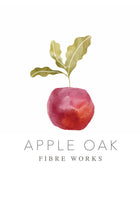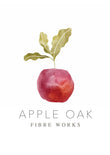The natural Dyer's Academy ~ Module 8 Secondary Colours

Excerpt:
Originally, I thought I would include these dyes in the red chapter, but giving the complexity of red, I figured it would be better to introduce them later on. And here we are! More complexity! Quinone dyes are unique 'we don't fit in the standard box' dyes. See for yourself:
“Colour is a power which directly influences the soul.” ~Wassily Kandinsky
In this lesson:
- What are Quinone dyes?
- Safflower
- Alkanet or Dyer's Bugloss
- The beautiful shades of Walnuts
- Henna or Egyptian Privet
- The fascinating world of Rhubarbs
- The world of Ireland's favourite Garden plant: The dock (Rumex) family
- The Buckthorn Family
____________________________________
Chapter 2: Garden and Hedgerow dyes
Excerpt:
Quinone dyes are very versatile and you have probably now realized, that a lot of them grow on your doorstep. Depending on the size of your studio or dye house, garden and hedgerow dyes might be a wonderful dye source...
- Natural Dyes found in Hedgerows and the wild
- Natural Dyes found and grown in the garden
____________________________________
Chapter 3: Natural Dyes from the Kitchen
Excerpt:
No course would be complete without mentioning kitchen dyes. Sure, for a professional dye house, we tend to focus on the classic dyes, but remember, that they are classic dyes, because they could and still can be produced on field scale. With today's climate situation and throw away mentality, making use of left overs is always a good idea....
____________________________________
Chapter 4 Modifiers & pH influencers
Excerpt:
They are a joy and a curse at the same time. Many natural dyers start out this way -experimenting and discovering the change in colour caused by changing the pH. I am no different. It is fascinating and you feel like an A+ chemist, wondering why they didn't use this to explain chemistry in school! It would have been so much more fun and easier to understand - at least for me. So why do I call them a curse?
____________________________________
Chapter 5 Secondary colours & combination dyes
Excerpt:
The final colour creating chapter of this course. Here, we will bring everything what we have learned so far, together. We will be looking at greens, teal, oranges and everything in between. A lot of this will be self directed work, combining colours and using recipes from previous modules. There is, of course, no end to it. By now you must have realized that the world of natural colour is vast, studio specific and even, dare I say, personal...
In this lesson:
- Important facts about combining colours
- Orange
- Pinks & Purples
- Reddish browns to browns
- Greens
- Teals & Turquoise
____________________________________
Chapter 6 Of Darkness...
Excerpt:
“Without black, no colour has any depth. But if you mix black with everything, suddenly there’s shadow – no, not just shadow, but fullness. You’ve got to be willing to mix black into your palette if you want to create something that’s real.” ~Amy Grant
In this lesson:
- Adding depth to your colour
- Creating Black
____________________________________
Chapters that are not included here are 3 recipes chapters for dyeing black on both cellulose and protein fibres, combination colours on protein and the same on cellulose.
The course is hosted at the Natural Dyers Academy and everyone is welcome to join the community! Once joined, you can decide if you like to stay in the free community area or join the Co~Lab rooms to learn, share and take part in dye alongs, zoom meetings etc.
Join the Natural Dyers Academy
I am looking forward to seeing you there! x
For more course details see the other blog posts or click below:
The Natural Dyers Academy 1 year course 2024 ~ sold out – AppleOak FibreWorks



Hinterlassen Sie einen Kommentar